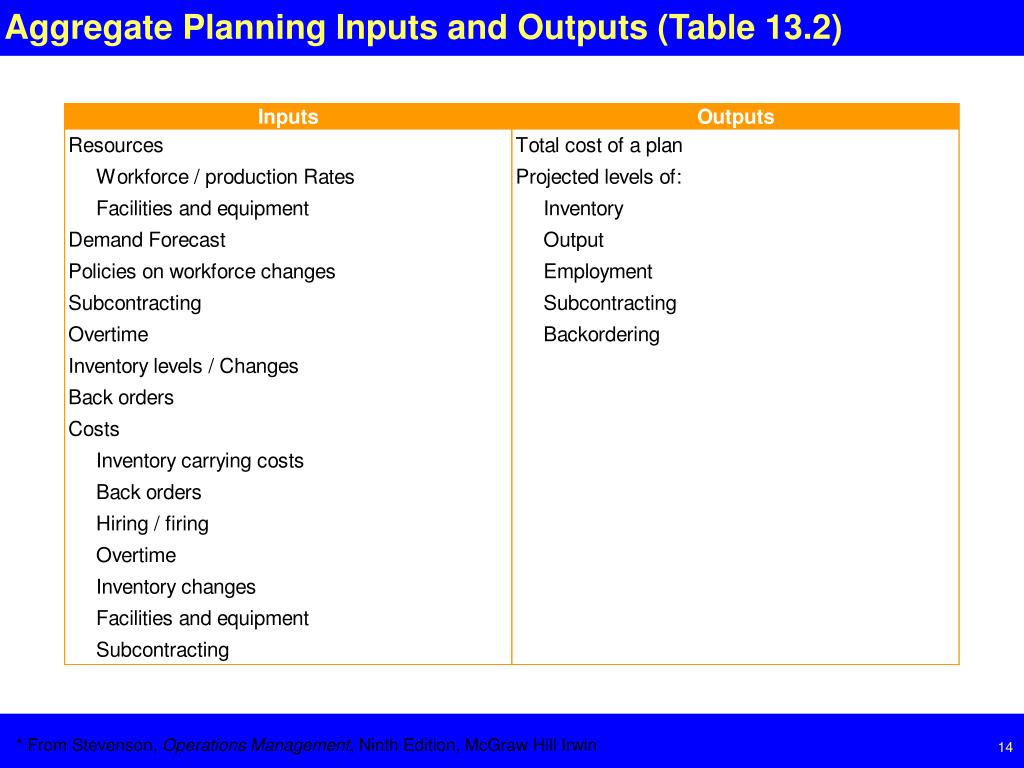Revenue Management and Aggregate Planning: How Does Revenue Management Impact An Aggregate Plan
How does revenue management impact an aggregate plan – Revenue management is a critical aspect of aggregate planning, as it directly influences production, inventory, and workforce planning. By optimizing revenue, businesses can improve forecast accuracy, enhance decision-making, and optimize resource allocation.
Revenue management can impact an aggregate plan by optimizing revenue streams, allocating resources efficiently, and forecasting demand. Just as finance is an art and science of managing money , revenue management requires strategic planning, data analysis, and effective communication to align with overall business objectives and ensure optimal revenue generation.
Revenue Management Strategies

Revenue management involves techniques that aim to maximize revenue by optimizing pricing, inventory allocation, and demand forecasting. Common strategies include:
- Yield management: Adjusting prices and availability based on demand patterns.
- Inventory control: Optimizing inventory levels to meet demand while minimizing waste.
- Demand forecasting: Predicting future demand using historical data and market analysis.
Impact of Revenue Management on Aggregate Planning, How does revenue management impact an aggregate plan
Revenue management significantly impacts aggregate planning in the following ways:
Production Planning
- Revenue forecasts influence production schedules, ensuring alignment with expected demand.
- Revenue optimization helps prioritize production of high-revenue products.
Inventory Management
- Revenue management determines optimal inventory levels to meet demand and prevent overstocking or shortages.
- Inventory is allocated based on revenue potential, ensuring high-revenue items have sufficient stock.
Workforce Planning
- Revenue forecasts guide workforce scheduling, ensuring adequate staffing levels during peak demand periods.
- Revenue optimization can identify areas for labor cost reduction or efficiency improvements.
Wrap-Up
In conclusion, revenue management is an indispensable tool for businesses seeking to optimize their aggregate planning processes. By integrating demand forecasting, pricing strategies, and resource allocation techniques, organizations can achieve greater forecast accuracy, enhance decision-making, and optimize resource utilization. Embracing revenue management empowers businesses to navigate market volatility, maximize revenue, and gain a competitive edge in the ever-evolving global economy.
Revenue management plays a crucial role in shaping an aggregate plan by optimizing revenue streams and aligning them with demand fluctuations. This dynamic process involves forecasting demand, setting prices, and allocating resources to maximize profitability. However, managing revenue effectively can also present challenges, particularly when it comes to resolving conflicts within an organization.
Conflict management in an organization is essential for maintaining a harmonious work environment and ensuring that revenue management strategies are implemented effectively. By addressing conflicts promptly and effectively, organizations can foster collaboration and optimize revenue generation.
Top FAQs
What are the key revenue management strategies?
Revenue management strategies encompass dynamic pricing, inventory control, and capacity management, enabling businesses to adjust pricing, inventory levels, and resource allocation based on demand forecasts.
How does revenue management impact production planning?
Revenue management provides insights into demand patterns, enabling businesses to optimize production schedules, minimize inventory waste, and ensure product availability to meet customer demand.
What are the benefits of incorporating revenue management into aggregate planning?
Revenue management significantly impacts aggregate planning by optimizing revenue generation through forecasting demand, setting prices, and managing inventory. Earned value management is an example of a technique used in aggregate planning to track project progress, identify variances, and predict project outcomes.
By integrating earned value management principles, revenue management can enhance its accuracy and effectiveness in driving profitability and aligning production with market demand.
Integrating revenue management into aggregate planning enhances forecast accuracy, improves decision-making, optimizes resource allocation, and ultimately increases revenue and profitability.
Revenue management plays a pivotal role in shaping an aggregate plan, determining the optimal production and inventory levels. Effective revenue management requires coordination among different types of managers in an organization, including operations managers responsible for production and inventory, different types of managers in an organization , and finance managers overseeing revenue forecasting and budgeting.
This collaboration ensures that revenue management strategies align with overall business objectives and drive profitability.
Revenue management plays a crucial role in aggregate planning by optimizing revenue streams. This involves forecasting demand, setting prices, and allocating resources to maximize profitability. By aligning revenue management with an aggregate plan, businesses can create an asset management plan that outlines the strategies and tactics for acquiring, maintaining, and disposing of assets.
This plan helps ensure that assets are used efficiently and effectively to support revenue generation and overall business objectives.
Revenue management directly impacts an aggregate plan by optimizing revenue and demand. Its techniques can be applied to fund management, where emotions can cloud financial decisions. By incorporating behavioral finance principles, fund managers can make more rational investment choices, leading to improved aggregate planning.
This approach aligns with the concept of “emotional finance,” as discussed in fund management an emotional finance perspective , highlighting the role of emotions in financial decision-making.
Revenue management is crucial in shaping an aggregate plan, as it forecasts demand and sets pricing strategies to optimize revenue. Just like elements of an environmental management system work together to achieve sustainability goals, revenue management collaborates with other functions to align production, inventory, and workforce planning with demand patterns, ensuring efficient resource allocation and maximizing profitability.
Revenue management’s impact on aggregate planning is multifaceted, affecting production, inventory, and workforce levels. Developing an asset management strategy, such as developing an asset management strategy , can provide insights into asset utilization and maintenance, enabling organizations to optimize resource allocation and minimize costs.
This, in turn, influences aggregate planning decisions, ensuring efficient operations and improved financial performance.